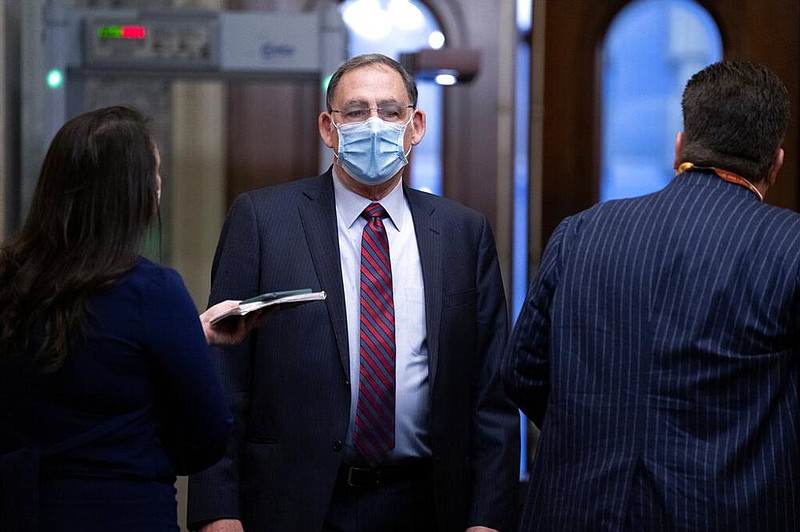WASHINGTON -- Proposed Democratic tax increases would make it hard for farms to be passed down from generation to generation, five Republican members of the Senate Agriculture Committee warned Wednesday.
In their speeches on the Senate floor, U.S. Sens. John Boozman of Arkansas, Chuck Grassley of Iowa, Cindy Hyde-Smith of Mississippi, John Hoeven of North Dakota, Roger Marshall of Kansas and two of their Senate colleagues said increased taxes, imposed at death, would make it impossible for families to continue farming on their ancestral land.
Efforts to reduce estate-tax exemptions and to raise capital-gains taxes "put the future of our family farms and ranches are at risk," said Boozman, the committee's ranking member.
"The next generation of family farmers will face devastating consequences if the Democrats have their way," the lawmaker from Rogers said. "Their proposed changes put the future of nearly 2 million family-owned farm operations at risk."
Under existing law, Americans face a nominal capital-gains tax rate of up to 20% if they sell assets that have risen in value since their initial purchase. If they hold on to the asset until death, however, they can pass it to their heirs on a stepped-up basis.
If, for example, farmland purchased for $1 million is worth $5 million at the time of a farmer's death, his heirs won't face a capital-gains tax on the land even though its value has risen by $4 million since its purchase.
The Sensible Taxation and Equity Promotion -- or STEP -- Act would change that.
After exempting the first $1 million in capital gains, it would apply a tax on the remaining $3 million.
Unveiled by U.S. Sen. Chris Van Hollen, D-Md., it has the backing of Democratic U.S. Sens. Cory Booker of New Jersey, Sheldon Whitehouse of Rhode Island and Elizabeth Warren of Massachusetts, as well as independent Bernie Sanders of Vermont.
The top capital-gains rate is now 20%, though the White House has suggested raising it to 39.6%.
Sanders also has introduced legislation, known as the For The 99.5 Percent Act, to increase taxes on inheritance and to lower exemptions.
Under current law, the first $11.7 million of an individual's assets are exempted from estate taxes. Under Sanders' proposal, the first $3.5 million would be exempt.
Under existing law, the maximum estate tax rate is 40%. Sanders seeks to raise it to 65%.
The calls for tax increases are a cause for concern, according to Arkansas Farm Bureau President Rich Hillman.
"It would devastate Arkansas agriculture," he said.
For many Arkansas farmers and ranchers, higher estate taxes would be "a burden a lot of them could not handle," he added.
Unveiling the measure, Van Hollen said the existing system fosters inequality.
"The stepped-up basis loophole is one of the biggest tax breaks on the books, providing an unfair advantage to the wealthy heirs every year," he said in a written statement. "This proposal will eliminate that loophole once and for all. It's time to stop subsidizing massive inheritances for the rich and start investing in everyday Americans."
In his speech, Grassley said the tax proposals would result in "ruination" for rural communities.
"This group claims that these tax cuts are targeted solely to the very wealthy. However, deep down, embedded in their tax hike proposal is a direct attack on family farms."
In addition to five Senate agriculture committee members, Roy Blunt, R-Mo., and Jerry Moran, R-Kan., delivered speeches opposing the tax increase proposals.
